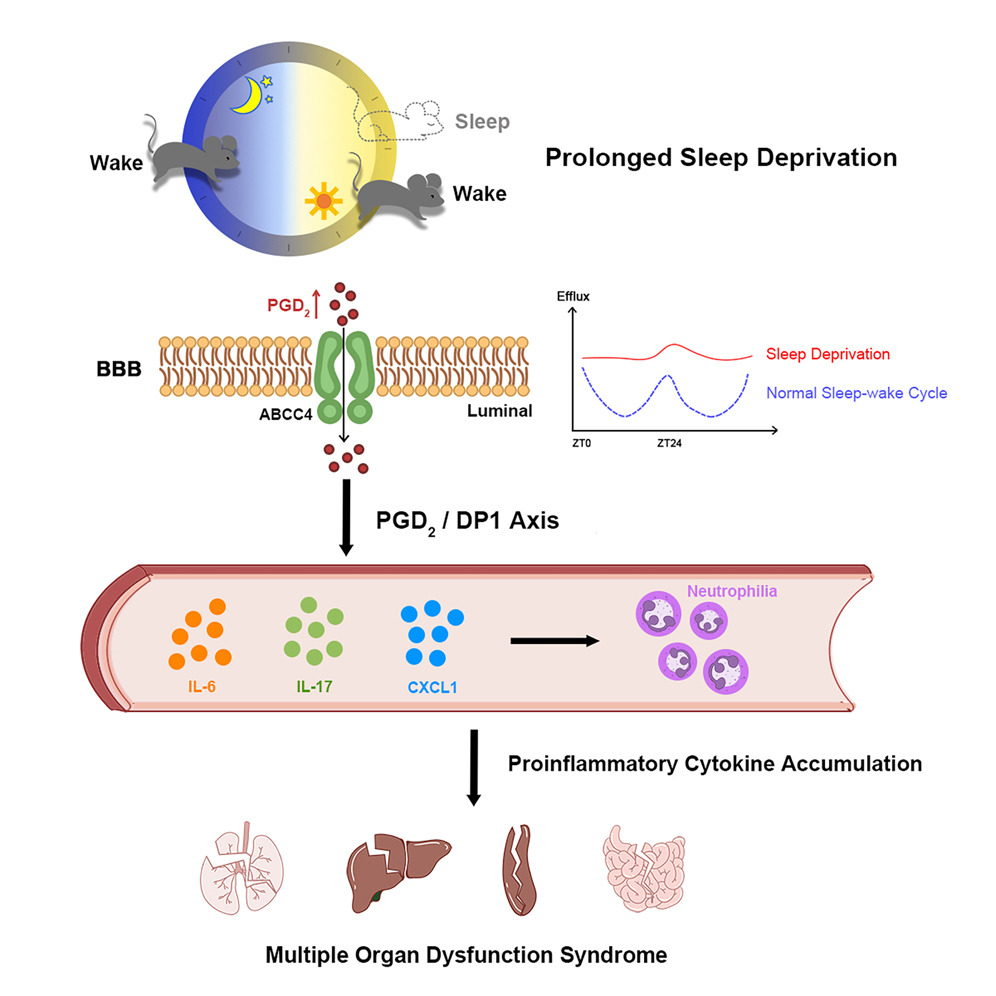Sleep is essential for the majority of animals, with humans spending about one third of their lives asleep. Lack of sleep leads to a variety of health issues, sparking inflammation and chronic immune diseases. Animal studies show that prolonged sleep deprivation can result in death. However, how mammalian sleep regulates the immune system and how sleep deficiency negatively affects health remain unclear.
Prolonged sleep deprivation induces a cytokine-storm-like syndrome in mammals
Recently, a research article titled “Prolonged Sleep Deprivation Induces a Cytokine-Storm-Like Syndrome in Mammals” by Sang D and colleagues was published in the journal Cell.
Key Findings:
1. The introduction of a highly effective strategy for sleep deprivation in mice.
2. Enhanced PGD2 efflux across the blood-brain barrier due to sleep deprivation.
3. Sleep deprivation provokes a rise in both cytokines and circulating neutrophils.
4. The sleep-deprived brain influences the peripheral immune system via the PGD2/DP1 pathway.
In this study, researchers found that long-term sleep deprivation in mice leads to a severe cytokine storm. They also unveiled the neural molecular mechanism behind the peripheral immune response due to sleep deprivation: the brain-derived PGD2/DP1 signaling pathway. This research not only lays a foundation for explaining and resolving health issues caused by insufficient sleep, but also helps deepen our understanding of how sleep interacts with other biological processes. It further elucidates the function and significance of sleep.
Reference:
[1] Sang D, et al. Cell. 2023 Dec 7;186(25):5500-5516.e21.
